How Chad’s killing fields have been transformed into an elephants’ haven
Zacouma National Park had lost 90 per cent of its elephants to poachers before the Central African country decided to fight back. Now the task is to attract herds of tourists to help pay for what has become an uplifting wildlife conservation effort
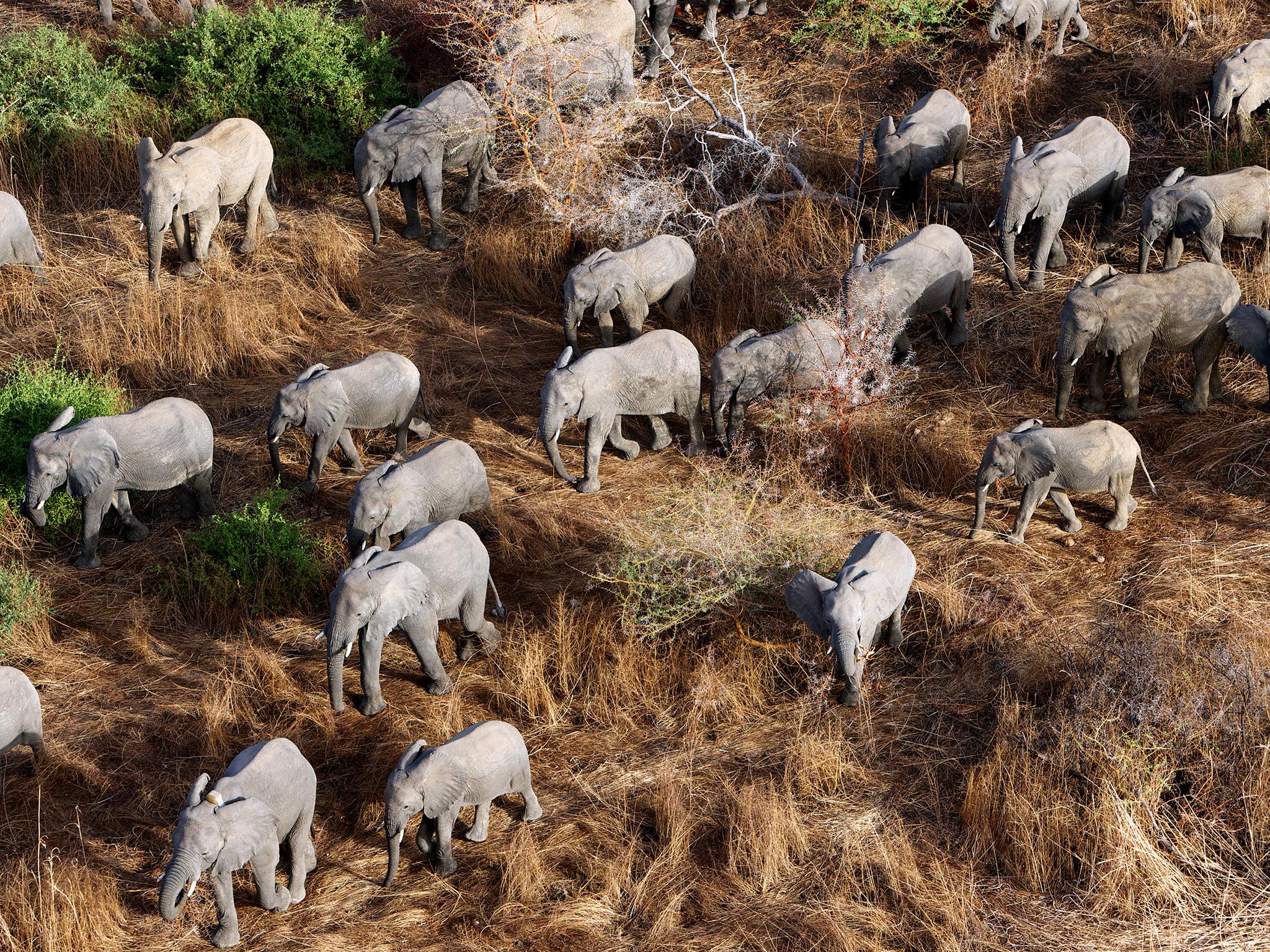
Your support helps us to tell the story
From reproductive rights to climate change to Big Tech, The Independent is on the ground when the story is developing. Whether it's investigating the financials of Elon Musk's pro-Trump PAC or producing our latest documentary, 'The A Word', which shines a light on the American women fighting for reproductive rights, we know how important it is to parse out the facts from the messaging.
At such a critical moment in US history, we need reporters on the ground. Your donation allows us to keep sending journalists to speak to both sides of the story.
The Independent is trusted by Americans across the entire political spectrum. And unlike many other quality news outlets, we choose not to lock Americans out of our reporting and analysis with paywalls. We believe quality journalism should be available to everyone, paid for by those who can afford it.
Your support makes all the difference.“If everyone’s stomachs are up to it, we can go see the elephants,” said Rian Labuschagne, his voice crackling through my aviation headset.
Receiving the thumbs-up from his three passengers, Labuschagne, who was then manager of Zakouma National Park in Chad, steered the fixed-wing Cessna C180 towards a spot 12 miles south. Earlier that morning, his rangers had spotted the elephants there.
It was precisely these elephants that had drawn me to this remote Central African park. Although few Westerners have heard of it, Zakouma is home to one of the most stunning conservation success stories in Africa. Unchecked poaching had previously rendered the protected area a near war zone: as rebel factions attempted to overthrow the government from 2005 to 2010, poachers took advantage of the country’s lawless state to massacre 90 per cent of the park’s elephants. But after taking over Zakouma’s management in 2011, Labuschagne and his team transformed it into a rare safe haven for Africa’s imperilled elephants.
“If you look at the Central and West African savannas, elephants have almost been exterminated – their populations are just being lost nonstop,” said Chris Thouless, the director of the Elephant Crisis Fund at Save the Elephants, a nonprofit organisation based in Kenya. “Zakouma, however, is an outstanding exception.”
I nervously gripped the seat as drafts of warm air tossed the tiny vessel to and fro. But the scenery below was well worth the nerve-wracking ride. We passed over an 850-strong herd of buffalo, smoky dust trailing in their wake, and sent a seemingly endless procession of crocodiles slithering into the murky Salamat river. In an adjacent wetland, several hundred pink pelicans took flight like cherry blossom petals in the wind, making me momentarily forget my nausea and angle for a better view.
Ten minutes later, the elephants came into view. Too numerous to count, they were congregated in and around a narrow, latte-brown channel in the Salamat. Some had their straw-like trunks stuck into the water, others were simply cooling off in the knee-deep mud. Babies – adorable in their ungainliness – playfully splashed around their elders’ feet.
As we circled overhead, Labuschagne pointed to still more elephants streaming through the scrubby forest to join their families and friends at the water. “When we first came here, flying over, we could still see white bones everywhere marking the massacre sights,” he said. “Now, the elephant population is going up.”
Made up of more than 500 animals, the Zakouma herd is one of the largest surviving in Central Africa. That elephants still exist here at all comes as a shock to many experts. The park’s population, Thouless said, “was just in free fall”.
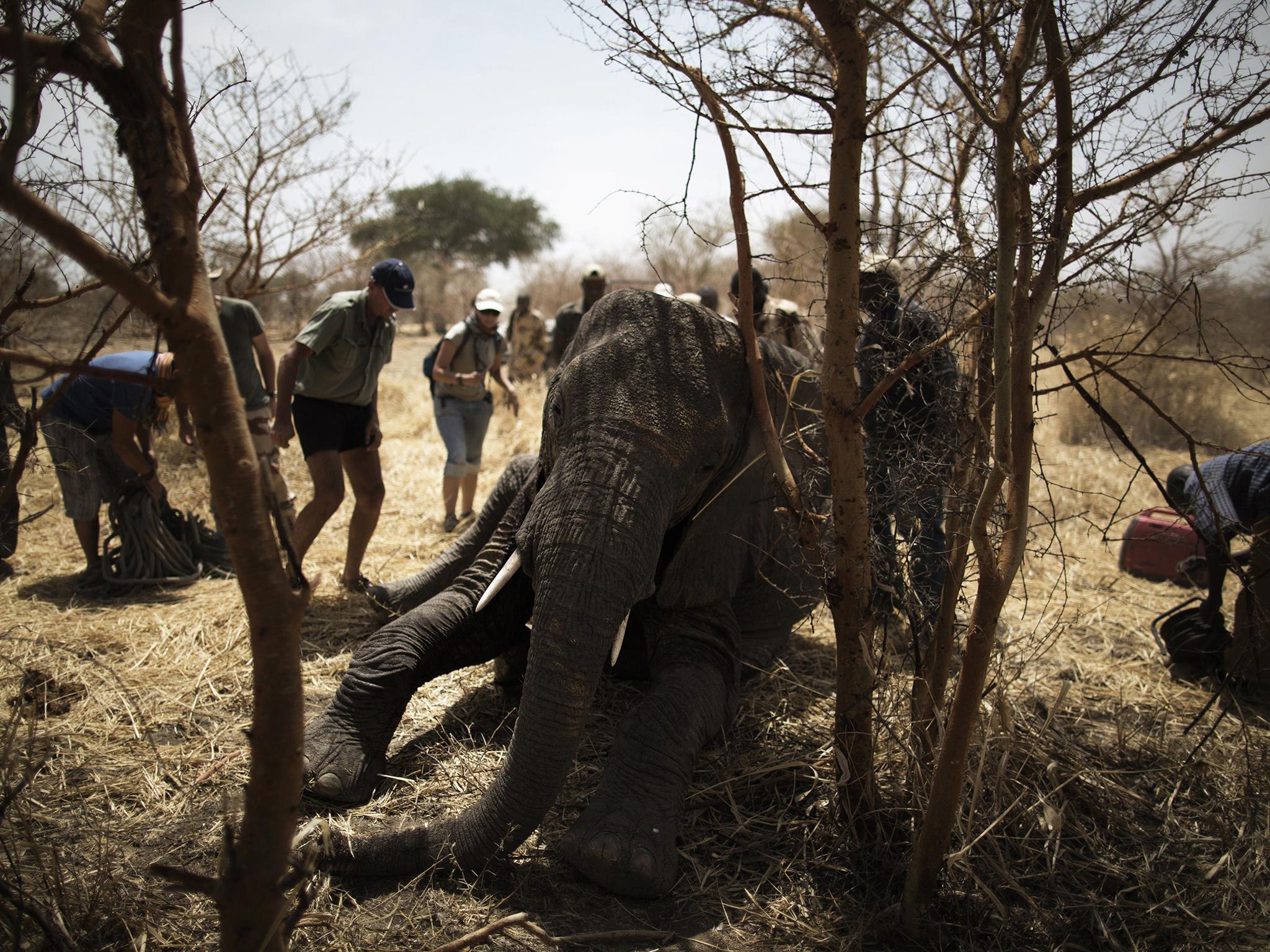
“People just couldn’t get a grip on the poaching, and the expectation was that the population was going to go the way that everywhere else was – obliteration,” he said.
Starting in 2002, heavily armed poachers on horseback, many from Sudan, relentlessly stormed the park, reducing the elephant population to just over 400 from 4,000 in less than a decade. “In my time in Zakouma, I lost seven rangers killed by poachers, and we twice received visits from the rebels,” said Luis Arranz, who served as the park manager from 2001 to 2007. “All the difficulties came from the poachers, who were ready for everything – to kill and to die for ivory.”
Everyone assumed the animals were doomed.
But the president of Chad, Idriss Deby – a longtime advocate for his country’s wildlife – was not willing to give up on Zakouma’s elephants. He began exploring the possibility of bringing in African Parks, a South Africa-based nonprofit organisation that specialises in managing and rehabilitating failing protected areas, to take over Zakouma’s management. But immediately, his government advisers opposed the move.
Dolmia Malachie, the coordinator of Chad’s National Elephant Action Plan, said he was at first opposed to the African Parks model of doing things – especially of handing control of the park over to a foreign group. “I was able to convince everyone in the ministry that we would not give Zakouma to African Parks,” he said.
But in 2010 – ignoring Malachie and others – Deby handed over Zakouma’s reins to the foreign nonprofit. Although Deby – who has been in power since 1990 – has a concerning track record in terms of human rights abuses and corruption, conservationists generally regard him as an ally. “The key thing is he’s allowed African Parks to save Zakouma and has also given them a management agreement for a new area in the north,” said Thouless, referring to Ennedi, a 15,000-square-mile Unesco World Heritage Site signed over to African Parks in February. “That is a sign of commitment.”
Shortly after Deby made his decision, Labuschagne and his wife, Lorna, who are originally from South Africa, were brought in to direct efforts in Zakouma. They quickly set to work modernising the park’s communication centre and facilities; weeding out corrupt staff; training and better equipping the rangers; and building stronger relationships with local communities around the park.
“What the Labuschagnes put in here was absolutely groundbreaking,” said Leon Lamprecht, Zakouma’s current manager. “They’ve gotten numerous awards both here and internationally for their work.”
Even Malachie was quickly won over: “When Rian came, he did a fantastic job,” he said. “I don’t know of any other park manager who has been able to do as great a job as he did.”
Things could have fallen apart in 2012, however, when a catastrophic poaching attempt claimed the lives of six rangers. But rather than give up, the Labuschagnes doubled down on their efforts. “When it was finalised and we knew that they were dead, we had to go to each family and tell them – it was very, very difficult,” Labuschagne said. “But we used that incident to argue for better communication equipment and for better arms and ammunition, because we knew this could potentially happen again.”
They also formed a team of anti-poaching rangers called the Mambas, who quickly took to the job. “The Chadian mindset is very proud, very effective and no-nonsense,” Lamprecht said. “If you take that kind of brave, strong person who doesn’t easily give up and you give him the necessary training to do the job, you then have a very good ranger.”
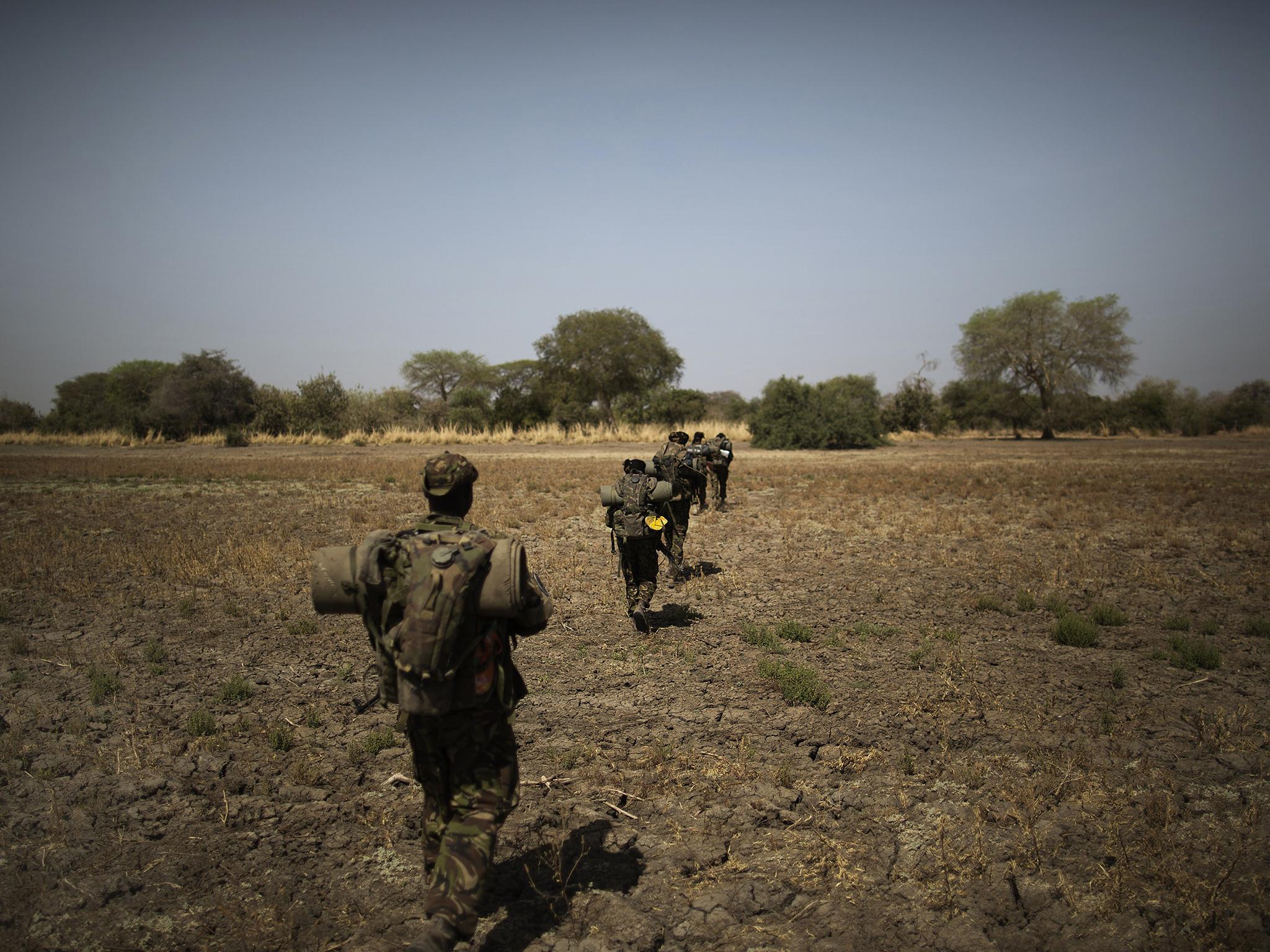
At the same time, the Labuschagnes began inviting people from surrounding villages – including around 5,000 children annually – to go on free educational overnight safaris. “The mistake most parks make is they don’t allow the local population to come in for nothing or for a very small amount,” Lorna Labuschagne said. “We felt it was more important to get people here than to get a park fee out of them.”
Because of the park’s heightened security and the increasing support of surrounding communities, Zakouma has not suffered a confirmed poaching incident since January 2016. After a several-year stretch with very few births, the elephant population has once again begun growing, and six black rhinos arrived this month from South Africa. A critically endangered species, black rhinos became extinct in Chad in 1990 when the last animals were poached for their valuable horns.
“For Chad, the arrival of black rhinos means that the international community is respecting the security we can provide and is therefore happy to send rhinos here,” Lamprecht said.
To make way for all the new arrivals, in October 2017, African Parks signed an agreement with the Chadian government to take over management of the neighbouring Siniaka Minia Faunal Reserve, adding more than 1,700 square miles to Zakouma’s existing 1,100 square miles. The expansion was necessary to safely accommodate the quickly growing elephant population, which is expected to hit the 1,000-animal mark by 2024.
As the situation on the ground continues to improve, tourism will play an increasingly important role in Zakouma’s recovery. “Chad” and “tourism” are not words that usually go together, however. A State Department travel advisory warns of land mines, suicide bombers and bandits, and the country shares borders with volatile neighbours, including parts of Nigeria that are strongholds of the terrorist group Boko Haram. I was warned by several concerned friends and family that I risked being kidnapped if I dared to follow through on my travel plans.
Lamprecht said that, at the moment, the situation in Chad is stable. While that could always change, for now his goal is for tourism to eventually contribute up to 50 per cent of the park’s operational income. “If we were pessimistic, we would never get anything done,” he said.
The Labuschagnes – who moved to Tanzania in February 2017 after six years at Zakouma – laid the foundations for visitors at Zakouma by creating Camp Nomade, a luxury safari camp, and the first of its kind in Chad. As Nomade’s name suggests, its aesthetics match those of the surrounding nomadic communities, and the camp is also mobile, allowing it to move with the wildlife on the Rigueik floodplain – “one of the most beautiful places in Zakouma, and busiest in terms of birds and game,” said Matthieu Radot, the camp’s current manager.
Camp Nomade is not cheap, but that has not stopped it from selling out since opening in 2015. (A stay there runs to $5,500 (£4,130) per person for seven nights, not including chartered flights from N’Djamena.)
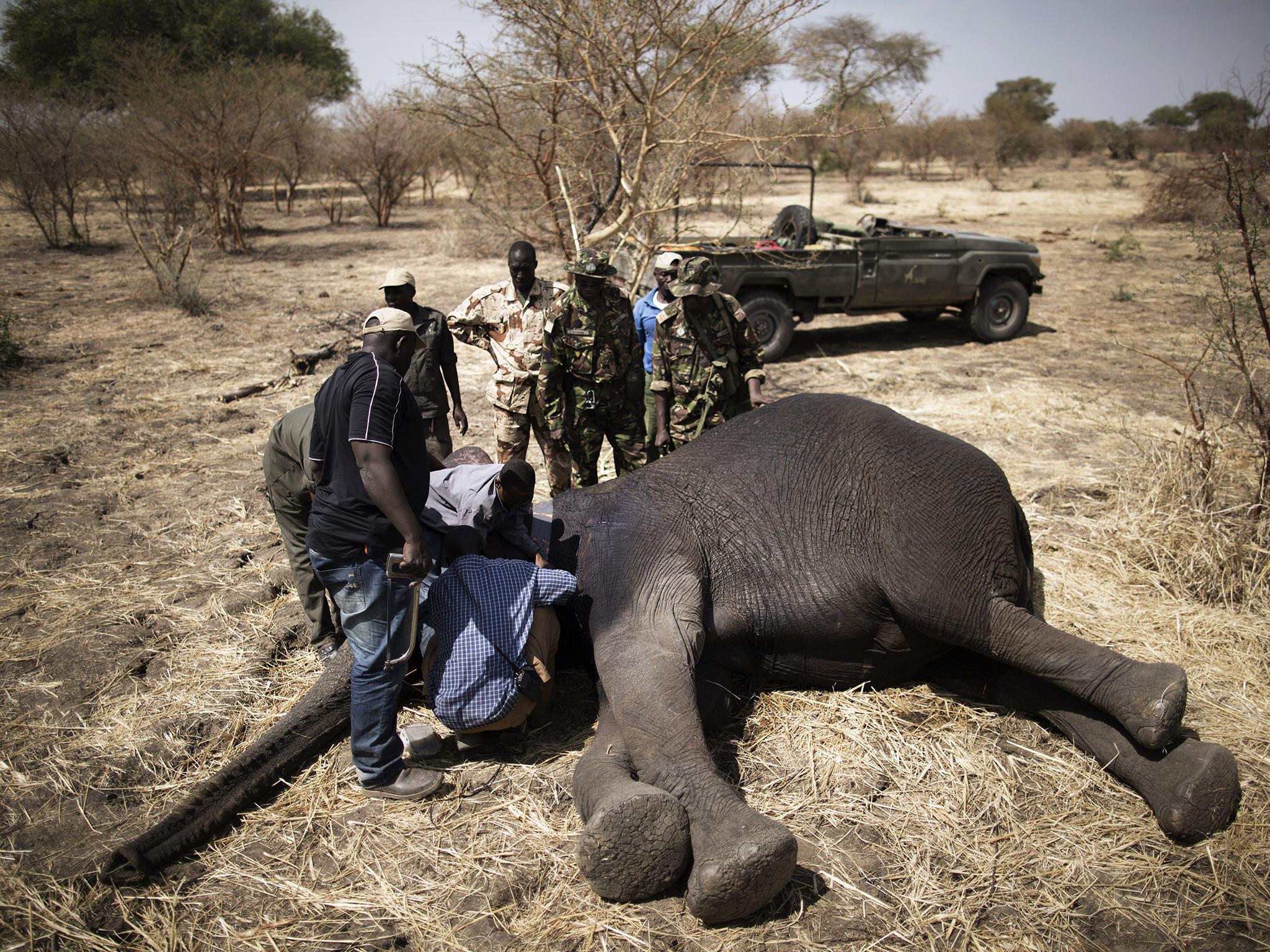
I had the opportunity to overnight at Camp Nomade with Labuschagnes in January 2017. I was immediately struck by the careful attention paid to even the subtlest details. Hand-woven grass fences surrounding the kitchen and en suite bathrooms made the camp blend in with the scrub and trees on the edge of the floodplain, while carpets and leather sourced from artisans throughout the country gave the cosy, open-air common area a distinctly Chadian feel. My home for the night – a modest but comfortable walk-in tent that provided an unbroken view of sprawling wilderness – was sewn by local seamstresses.
“The biggest goal was not to have Nomade look like those commercial projects you see in Southern Africa,” said Jamie Sparks, who was the camp manager when I visited and who left the job so she could write a cookbook-cum-memoir about her time in Zakouma. “Everything here was produced at Zakouma or around Chad.”
By day, there is no shortage of exploring to be done. Zakouma’s famous elephants are always a game drive highlight; after spotting the herd from the air, I was lucky enough to be able to take a walking safari to see them up close on my first day in the park. We heard them before we saw them – deep chortling and growling sounds coming from the thick brush. Quietly and ever so slowly approaching them, with the Labuschagnes in the lead, we were able to watch adults and several babies enjoying a late afternoon lunch of leaves and grass, not 50 feet away.
The elephants, however, are not the only draw. Visitors can also view herds of buffalo and tiang – a type of antelope – in numbers rarely seen elsewhere, and the park hosts an estimated 950 Kordofan giraffes – almost half of the world’s remaining population of that imperilled subspecies. Lions, cheetahs and leopards may be spotted during the day, while night brings out a parade of smaller carnivores, including servals, genets, civets, pale foxes and honey badgers.
Sightings of any given species are not a guarantee, however – a fact that only contributes to Zakouma’s sense of discovery. I did not see any big cats while I was there, for example, but a group that arrived days before me saw several. “In South Africa, the rangers know where the game is and you know you’re going to see your Big Five,” said Josh Iremonger, a Botswana-based private guide who often leads tours in Zakouma. “But at Zakouma you do feel like you’re on this expedition and you don’t know what you’re going to see.”
Because Chad remains one of the least-visited nations in the world, visitors are also rewarded by an entire park virtually to themselves. When Iremonger leads groups there, he often goes days without seeing another vehicle, save for those of the rangers and of locals passing through on public roads. “Whereas if you go to the Maasai Mara or to the Serengeti or to certain parts of Botswana, it’s going to be chock-a-block with vehicles,” he said.
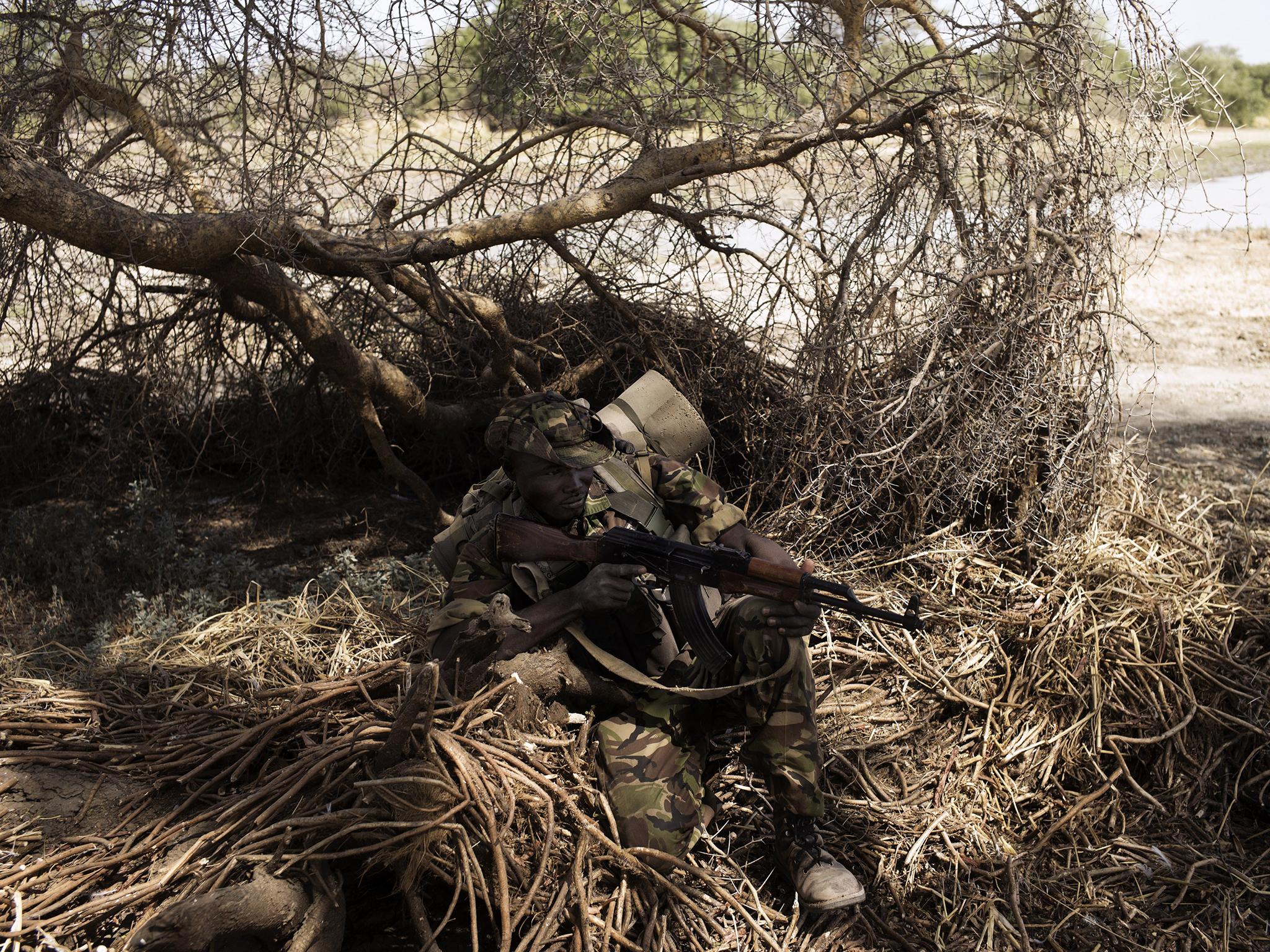
Yet getting to Zakouma is easier than you might expect: I flew Air France directly from Paris to Chad’s capital, N’Djamena, and African Parks arranges chartered flights from there.
Once on the ground, guests often pursue specific interests such as photography or birding, or they may simply be lured in by the promise of a destination largely unexplored, Sparks said. Virtually all, however, are passionate about wildlife conservation.
For such people, Zakouma is not only an ideal destination for its inspiring story and the animal-viewing opportunities it offers, but also a chance to directly support such endeavours. Following a core principle of the African Parks model, all visitor profits go towards park management and projects in local communities, including building schools.
The plan is to increase those profits by broadening Zakouma’s international appeal and accessibility through Tinga Camp, a less exclusive but more affordable option than Camp Nomade, priced at $135 to $145 per night. Its 24 rooms, including ones suitable for hosting families, will receive a complete makeover in 2018. “We’re trying to open the doors to Chad for more and more people,” Sparks said. “You’ll get an incredible trip, and you’ll be helping the elephants.”
Rachel Nuwer’s book ‘Poached: Inside the Dark World of Wildlife Trafficking’ will be published in September by Da Capo Press
© New York Times
Join our commenting forum
Join thought-provoking conversations, follow other Independent readers and see their replies
Comments